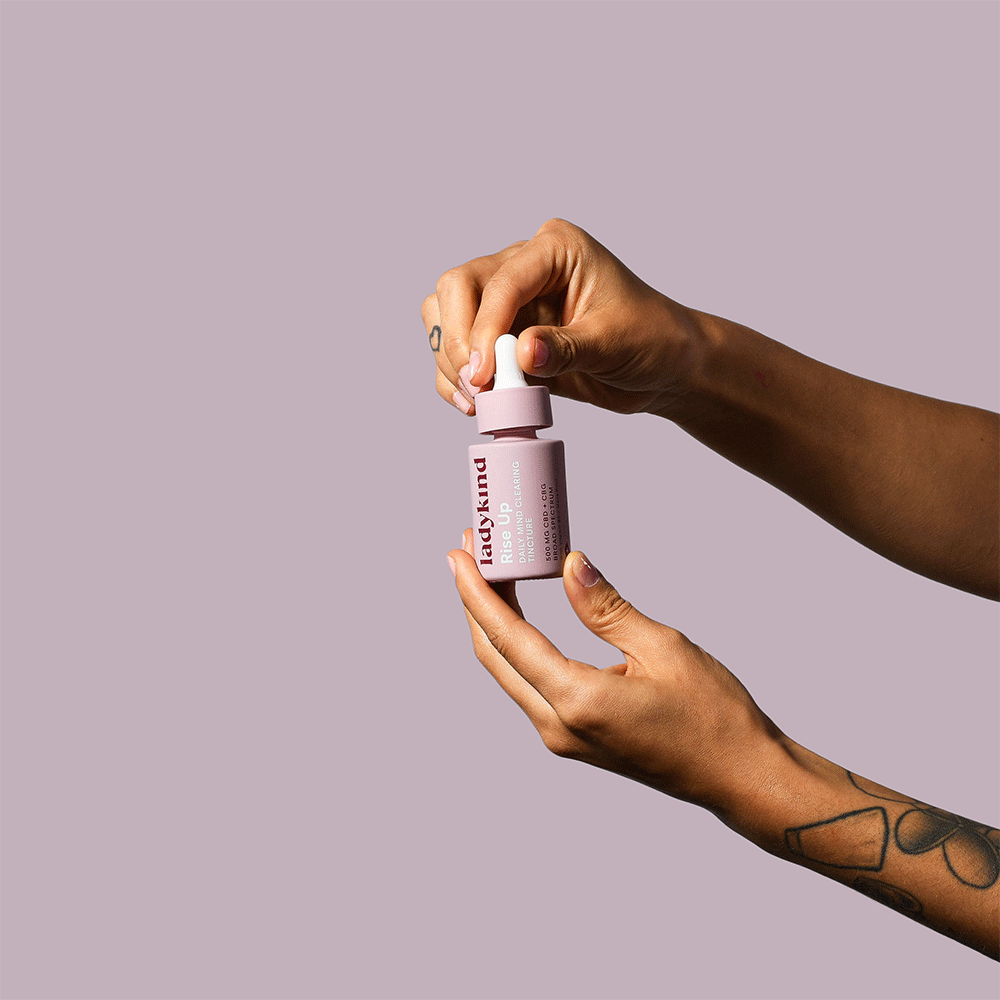Historically speaking, mental health is a crucial aspect of our wellbeing that has been often overlooked, minimized, and dismissed. However, the health and wellness industry has come a long way in putting mental health at the forefront of society. Brands like Ladykind exist to bring taboo topics to the table and destigmatize the experiences of millions who experience chronic stress, anxiety attacks, and severe mental breakdowns.
It’s important to note that even someone who considers themselves mentally healthy can experience a mental breakdown. Recognizing the signs and responding appropriately can make a significant difference in how someone experiences such an event. Thus, in today’s blog we’ll discuss what a mental breakdown is and what you can do to support someone who’s going through one.
Disclaimer: The content provided in this blog is for informational and educational purposes only and is not intended to be a substitute for professional mental health advice, diagnosis, or treatment. Ladykind is not a licensed mental health provider. If you are experiencing a mental health emergency, please contact a qualified mental health professional immediately or dial emergency services in your area. Never disregard professional medical advice or delay seeking it because of something you have read on this blog.
What is a mental breakdown?
A mental breakdown is the same thing as a nervous breakdown, which is a period of intense mental distress that inhibits the person's ability to function in their daily life. To put it another way, a mental breakdown is a colloquial way of describing the effects of severe psychological stress. A mental breakdown can manifest suddenly or build over time, and is brought on by lifestyle factors like pressure at work, personal crises, or underlying health issues.
How to recognize the signs of a mental breakdown
A mental breakdown consists of a combination of emotional, psychological, and physical signs you might recognize as:
- Physical signs: Insomnia or irregular sleep patterns, changes in appetite, chronic fatigue, headaches, and stomachaches.
- Psychological signs: Perpetual confusion, paranoia, obsessive thinking, or an inability to concentrate or make decisions.
- Emotional signs: Chronic anxiety, persistent sadness, irritability, a helpless or hopeless perspective on life, or extreme mood swings.
Here’s what to do if someone is having a mental breakdown:
Keep yourself calm
Staying present and regulating your own emotions provides a sense of safety and security for someone who feels psychologically unsafe. Try your best not to display any disdain or frustration. Remember, in general, the golden rule for providing emotional support to someone else is to observe, not absorb.
Don’t try to fix the problem
Resist any inclination you have to jump to conclusions or fix the source of the person’s emotional pain. Instead, try to think of ways you can communicate empathy and support. When they are talking or expressing themselves non-verbally, remind them they are in a safe space and listen without judgment. Active listening means listening to understand, not to respond.
Offer them reassurance
Remind the person it’s okay to not be okay. It’s human nature to become overwhelmed, and like all emotions, the ones they are experiencing now are temporary. Do your best to validate what they are feeling without minimizing what they’re going through.
Ensure their basic needs are met
Oftentimes, mental breakdowns and severe stress can affect daily necessities such as eating and sleeping. Check on the person to make sure they’re eating, drinking water, and able to sleep. Furthermore, encourage them to remove any immediate stressors in their environment to facilitate new feelings of safety and comfort.
Help them seek professional help
Suggest they seek help from a professional, such as a therapist, counselor, or psychiatrist. Offer to help them find mental health resources and book appointments if necessary.
Prevent mental breakdowns by supporting long-term mental health
Supporting someone who’s experiencing a mental breakdown can be taxing on you, too. On that note, use the same tips above to support yourself if you notice your mental health on shaky grounds.
While these immediate actions are an appropriate response, sustainability and prevention are equally as important. Natural health aids, such as Ladykind’s women's health and wellness products provide a long-term solution to managing your mental health proactively rather than reactively. The Rise & Rest Set contains a duo of sublingual tinctures designed to provide psychological support around the clock. These award-winning products are doctor-recommended, tested by third-party labs for safety and efficacy, and contain all-natural, sustainably sourced ingredients that address hormone imbalance, pain and stress management, and enhance sleep quality to prevent the onset of mental breakdowns.
Experience better mental health
Mental health is a vital part of your overall wellbeing. By recognizing the signs of a mental breakdown and being able to respond appropriately, you can support yourself and others through the inevitable ups and downs of life.
Furthermore, to enhance mental resilience, consider adding a natural health aid, such as Ladykind’s award-winning Rise & Rest tincture duo into your daily routine. As a special thank you for visiting our blog, enjoy 20% off your purchase with discount code RISEANDREST20 at checkout. Shop now to take charge of your mental health and be a beacon of light for those around you struggling to prevent mental breakdowns.






